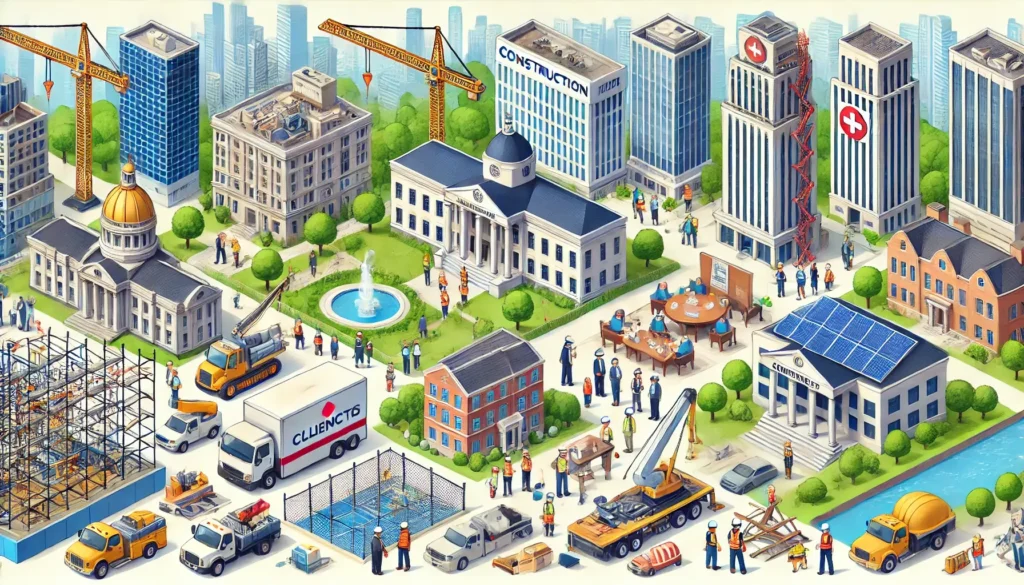Institutional
Institutional projects require a specific level of expertise that can only be gained from experience, let us contribute to your institution’s project. Our professionals will point you and your organization in the right direction.

Institutional projects require a specific level of expertise that can only be gained from experience. Let us contribute to your institution’s project. Our professionals will point you and your organization in the right direction. When undertaking institutional projects, it’s crucial to consider the unique demands and regulations of each sector. From adhering to stringent safety standards to ensuring minimal disruption to daily operations, institutional representatives must look for construction partners who are well-versed in these intricacies. Detailed planning, clear communication, and a commitment to quality are essential. Trust Tarpon Gulf to navigate these complexities and deliver exceptional results for your institution.
Understanding Institutional Construction Projects
Institutional construction projects typically follow a structured and methodical process to ensure compliance with regulations, meet the specific needs of the institution, and deliver high-quality results. Here’s an overview of how these projects generally work:
Initial Planning and Consultation
- Needs Assessment: Determine the specific requirements and goals of the institution.
- Feasibility Study: Conduct studies to assess the viability of the project, considering factors like budget, timeline, and site conditions.
- Stakeholder Consultation: Engage with stakeholders (e.g., administrators, staff, community members) to gather input and address concerns.
Design and Development
- Architectural Design: Develop detailed architectural plans and blueprints.
- Engineering Planning: Create engineering designs for structural, electrical, plumbing, and HVAC systems.
- Regulatory Approvals: Obtain necessary permits and approvals from local authorities and regulatory bodies.
Budgeting and Financing
- Cost Estimation: Prepare detailed cost estimates for materials, labor, and other expenses.
- Funding Arrangements: Secure funding through institutional budgets, grants, bonds, or other financing methods.
- Budget Approval: Get budget approval from relevant institutional authorities.
Institutional Procurement and Contracting
- Bid Solicitation: Invite bids from contractors, subcontractors, and suppliers.
- Contract Awarding: Select and contract qualified contractors and vendors.
- Procurement of Materials: Order and acquire necessary construction materials and equipment.
Construction Phase
- Site Preparation: Clear and prepare the construction site, including excavation and foundation work.
- Project Management: Oversee construction activities to ensure adherence to plans, schedules, and budgets.
- Quality Control: Implement quality control measures to ensure compliance with design specifications and standards.
- Safety Management: Enforce strict safety protocols to protect workers and the surrounding community.
Monitoring and Communication
- Regular Updates: Provide regular progress updates to stakeholders.
- Site Visits: Conduct site visits to monitor progress and address any issues.
- Change Management: Manage changes to the project scope, design, or schedule as needed.
Institutional Completion and Handover
- Final Inspections: Conduct final inspections to ensure all work meets quality and regulatory standards.
- Punch List: Create and address a punch list of any remaining tasks or corrections.
- Handover: Officially hand over the completed project to the institution.
- Documentation: Provide necessary documentation, including as-built drawings, operation manuals, and warranties.
Post-Construction Support
- Training: Offer training for institutional staff on the operation and maintenance of new facilities.
- Warranty Services: Provide warranty services for any defects or issues that arise after completion.
- Ongoing Maintenance: Establish a plan for ongoing maintenance and support to ensure the long-term success of the project.
Key Considerations for Institutional Representatives:
- Compliance: Ensure the construction partner is knowledgeable about regulatory requirements and standards.
- Experience: Choose a construction partner with a proven track record in similar institutional projects.
- Communication: Maintain clear and consistent communication throughout the project.
- Quality Assurance: Prioritize quality control and safety throughout the construction process.
- Sustainability: Consider sustainability practices to enhance the long-term value of the project.
By following these steps and considerations, institutional construction projects can be effectively managed to achieve the desired outcomes while minimizing risks and disruptions. If your organization has no well defined solicitations process, do not worry, we will help you create one.
